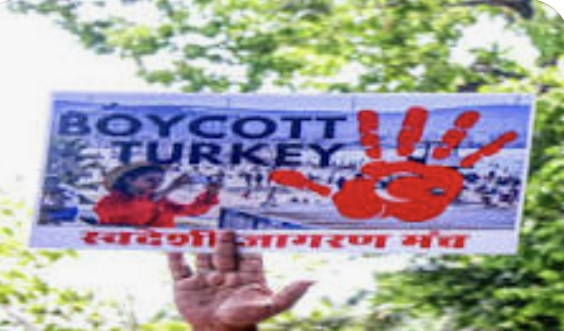India’s fury over foreign backing for Pakistan during “Operation Sindoor” has sparked a sweeping economic and cultural freeze-out of Turkey and Azerbaijan, yet Beijing and Washington—both demonstrably pro-Pakistan—remain untouched.
Licences cancelled: The civil-aviation ministry has scrapped ground-handling contracts held by a Turkish operator at multiple airports.
Campus cuts: Jawaharlal Nehru University, Jamia Millia Islamia and Maulana Azad National Urdu University have suspended exchanges with Turkish institutions.
Travel halted: Platforms like EaseMyTrip and Ixigo report near-total cancellation of bookings to Turkey and Azerbaijan.
Traders’ clampdown: The Confederation of All India Traders (CAIT), led by BJP MP Praveen Khandelwal, has ordered members to end all imports, exports and film shoots involving the two countries.
India exports far more to Turkey ($5.2 bn) than it imports ($2.84 bn). With Azerbaijan, commerce is token—$86 m in exports versus $1.9 m in imports—so the ban’s real bite falls on Turkey.
Beijing supplies up to 80 % of Pakistan’s weaponry, clashes with Indian troops in Ladakh, and now rechristens parts of Arunachal Pradesh—yet bilateral trade hit $118 bn last fiscal, with a yawning $99 bn deficit for India. Bustling markets from Delhi’s Sadar Bazaar to Chennai’s Parry’s Corner overflow with Chinese goods, undercutting the Prime Minister’s Atmanirbhar Bharat slogan.
During the four-day flare-up, U.S. statements repeatedly “hyphenated” India and Pakistan and revived the Kashmir question. President Trump even lauded a cease-fire “brokered” by Washington and discouraged Apple from manufacturing in India—yet no Indian boycott call followed.
Critics say the government’s silence on superpowers, contrasted with harsh measures against middling economies, exposes a double standard driven by fear of economic blow-back. Until New Delhi reconciles its rhetoric with reality, questions about strategic consistency will persist.




